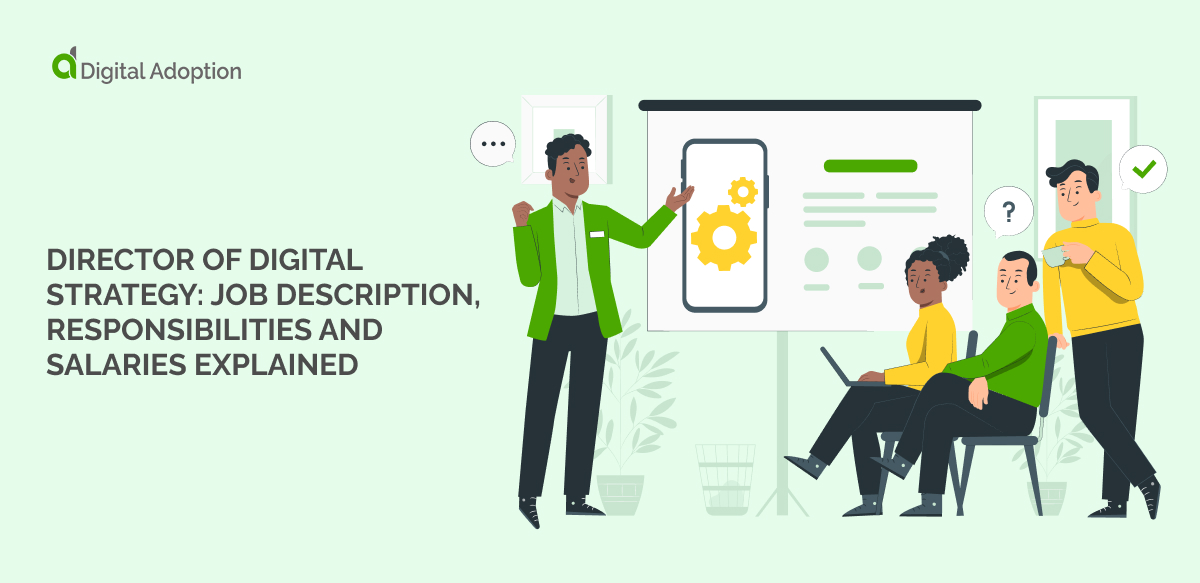For Gartner, digital transformation is one of their primary fields of expertise.
They focus heavily on digital transformation – best practices, its implications, the future of digital transformation, and more.
In this article, we will explore everything related to Gartner and digital transformation, including:
- How they view digital transformation
- Gartner’s research on digital transformation
- Insights and takeaways
- Their services
Among other things.
Let’s start by understanding what Gartner has to do with digital transformation in the first place.
Gartner Digital Transformation: Key Concepts and Takeaways
Gartner has long been a proponent of digital transformation.
For years, they have been urging businesses to transform now … before it is too late.
Naturally, therefore, digital transformation is one of their main areas of research. From in-depth surveys to marketplace research, they continually collect data on digital transformation, monitor current trends, and make predictions.
Anyone interested in digital transformation, therefore, should pay close attention to what the organization has to say on the subject.
We have listed a few key takeaways below:
According to the research firm:
Digital transformation is “the process of exploiting digital technologies and supporting capabilities to create a robust new business model.” Jorge Lopez, research VP at Gartner, says that the most successful digital transformations have a high level business industry vision aimed at changing their very industry. Amazon, a perfect change management case study, altered the face of retail through its powerful vision and relentless experimentation.
Digital transformation is urgent. In one article, Gartner claimed that “Two-thirds of all business leaders believe that their companies must pick up the pace of digitalization to remain competitive.”
This is echoed by Gartner’s discovery that 4 in 10 CEOs are taking a digital-first approach to business change. Others are taking digital “to the core of their enterprise model.” However, Gartner says that because transformation requires “commitment, leadership, strategy, technology, innovation and importantly, money,” funding is a concern.
Digital transformation requires additional investment. The traditional IT operating budget is insufficient to fund digital transformation, according to one Gartner survey. The reason for this is that most businesses see digital transformation as an opportunity for additional revenue – not saving money.
Digital dexterity should be enabled throughout the organization. CIOs and IT can “incubate” talent and model digital dexterity, helping it spread throughout a company. Efficiency and productivity benefits could then be felt across a company, instead of being restricted to a single department.
The workforce should be future-proofed to stay relevant. When continuous learning is the norm, employees must stay digitally skilled in order to remain productive. This can involve approaches such as digital adoption solutions, employee training, optimized user onboarding, and more.
Digital measurements matter. The right digital metric can influence decision-making and improve the outcomes of digital initiatives. According to Gartner, choose 5 to 9 metrics that matter. These metrics should have a causal relationship to a business outcome, address a specific audience, be understandable to everyone, and drive action when they fall into the red.
To successfully transform, organizations need the right skills. In one guide to digital transformation, Gartner released 10 planning guide topics that they feel are pivotal for driving successful digital transformation. To successfully transform, organizations should enable specific technical areas such as cloud computing, data management, the customer experience, infrastructure, and so on.
Move beyond digital transformation to “ContinuousNext.” In Gartner’s 2018 annual symposium, they even suggested that organizations move past digital transformation to what it dubbed “ContinuousNext.” In the coming years, claimed Gartner’s Mike Harris, five themes would dominate the coming years: culture, privacy, digital product management, augmented intelligence, and digital twins. Capabilities will be determined by an organization’s practices and mindsets, which are magnified by technology.
Data and analytics competency is a must. Though data and analytics fuel massive success and productivity gains, Gartner claims that fewer than 50% of documented corporate strategies mention data and analytics as “fundamental components for delivering enterprise value.” Given that leading organizations in any industry use data to gain a competitive edge, Gartner expects this number to rise to 90% by 2022.
Moving beyond “data competency.” In the future, Gartner predicts that to stay relevant, big data must become a centerpiece of enterprise strategy. It will no longer become a resource for supporting decision-making – it will become embedded and exploited throughout the organization.
Organizations should shift to a product-centric application delivery model for digital transformation. This organizational structure revolves around customer problems, is cross-functional, and more adaptable. In a 2018 survey, only 40% of those surveyed said product-centric models drove their work, but Gartner predicts that this number will rise to 80% by 2022.
Digital adoption solutions can greatly accelerate digital adoption and transformation efforts. Digital adoption solutions – Gartner’s term for digital adoption platforms (DAPs) – have been recognized by Gartner as a valuable tool for boosting performance. In one study, they found that digital adoption solutions can boost productivity, save time and money, improve user experiences, and more.
Note that this list is hardly comprehensive.
Gartner has plenty of research, ideas, and insights on digital transformation.
The best place to learn more is by directly visiting their website or following them on social media.













